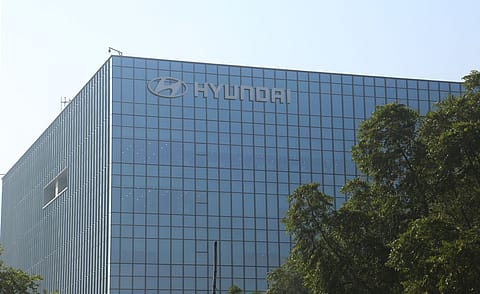Hyundai to develop Pune plant as multi-model export hub
India will receive the country's first EV designed specifically for local drivers, says Hyundai Motor Company.

Hyundai Motor Company plans to launch its first locally designed electric vehicle in India and expand production capacity at its soon-to-be-inaugurated Talegaon plant in Pune to 250,000 units by 2030, the South Korean carmaker announced at its first CEO Investor Day in New York.
“India will receive the country's first EV designed specifically for local drivers, while the market will also benefit from a localised supply chain,” José Muñoz, President and CEO of Hyundai Motor Company, said.
The South Korean carmaker plans to accelerate its global production capacity by adding 1.2 million units by 2030. “This includes 250,000 units from the Pune multi-model export hub in India,” the company said.
The Talegaon facility will begin production in the third quarter of the financial year 2025-26. Hyundai Motor India, which went public with the country’s biggest IPO last year, plans to make announcements about its future product pipeline at its first investor day on October 15, 2025.
Hyundai currently produces cars in India at its Chennai plant, which has a capacity of 824,000 units annually.
“In the October-December quarter, when we go live with the Pune plant, 170,000 units will immediately kick in. So the total capacity will increase to 994,000,” Hyundai Motor India chief operating officer Tarun Garg told reporters last week. “In 2028, 80,000 more units will kick in at Talegaon. So, it will be 10,74,000,” he said.
While Hyundai plans to increase its production capacity to over a million units in India, the country’s biggest carmaker, Maruti Suzuki, plans to double its production capacity from 2 million units currently to 4 million units by 2030-31.
Recommended Stories
Hyundai, which has ceded some market share to homegrown rivals Mahindra and Mahindra and Tata Motors, operates at over 90% capacity utilisation. “This is one big reason for our healthy EBITDA margins,” says Garg.
The capacity expansion comes at a time when Hyundai has seen a steady jump in export volumes. Exports contributed 20% to Hyundai Motor India’s total volumes last year. “In the first quarter of 2025-26, exports contributed 26.7% to total volumes. We believe that we can reach around 30% by 2030,” says Garg.
“We recorded a 13% year-on-year growth in export volumes for Q1 FY26, with 48,140 units shipped compared to 42,600 units in the same period last year. This has elevated the share of exports to 26.7% of total sales in Q1 FY2026, up from 22.2% in Q1 FY25,” he adds.
Hyundai plans to launch 6 new electric vehicles by 2030 and 20 ICE models in India by 2030. Some of these will also come with a hybrid powertrain.
(INR CR)
“EVs could be 15-17% of the overall market by 2030. Hyundai plans to have a higher market share in EVs than ICE. We are going the whole hog in EVs,” says Garg.
